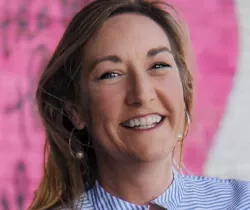As business event and trade show professionals grapple with the decisions surrounding virtual, in-person or hybrid, exhibitor dissatisfaction may tip the scales. That is problematic.
Exhibitor dissatisfaction cannot be assumed to be a byproduct of virtual in and of itself. Exhibitor dissatisfaction may in fact be the direct result of organizers who have not aligned the event experience with exhibitor needs and with exhibitors who have not calibrated their measurement to this new environment.
I’ve been an exhibitor and supported exhibitor service for 20 years. I know the push-pull inherent in the trade show space. “Well, the exhibitor did not do X properly,” says the organizer, smarting from exhibitor complaints about return on investment. “Well, the organizer did not deliver enough leads to the floor,” says the exhibitor struggling to advance deals.
Those complaints just shifted into the virtual realm, because organizers still control the audience and exhibitors still control their assigned space. Except in virtual, the exhibitors often control even less because of technology decisions made by organizers. Experience design of virtual events may have stymied exhibitors before they even got rolling. And yes, data on lead progress and measurement has been lacking on both sides.
Exhibitors in a broad Ascend Media study shared some major pain points recently published on LinkedIn. It’s feedback worth digging into, and worth digging into EARLY in experience design, not late. It’s worth elevating these ideas to a strategic planning level and finding solutions for the stakeholders that financially support your events.
Let’s address these top 10 voiced concerns in a series of posts that outline solutions for supporting exhibitors in a virtual environment, distilled into four big ideas.
The Four Big Ideas for Exhibitor Satisfaction
- Help Us Engage
- Don’t Hinder Efforts
- Teach the Tech
- Make Good Choices
Up First: Help Us Engage
What exhibitors told Ascend Media:
“Associations must do more to assist us in getting engagement with attendees. We are getting almost no return on our investment.”
“Let exhibitors present education during dedicated times where no other education is happening. And allow us to participate more in breakouts and panel discussions.”
What to do about it:
Several ideas can be enacted to support engagement between exhibitors and attendees, just like there are several ways to do this on-site. First and foremost, be intentional about supporting engagement. When the desire to help exhibitors engage is there across an association’s cross-functional leadership, and particularly when boards of directors understand the value of exhibitors, choices can be made to raise value for these revenue partners. An Evolio study showed the top desire for virtual exhibitors was speaking slots, a prominence even higher than it usually is for exhibitor studies.
From there, it makes sense to put exhibitors on the program in the form of roundtable discussion leaders, dedicated product demo sessions and moderators for content and social times. Another big way to help exhibitors engage is to choose a robust end-to-end technology platform. You should be able to offer:
- Dedicated engagement suites with interactive content options
- Upload and change capabilities so exhibitors control their content
- Buyer-Seller matchmaking capabilities driven by AI
- Included scheduling of one-on-one meetings
- Immediate text and video chat between exhibitors and attendees
- Real-time data on visit, clicks, content success and meetings
The push-pull of exhibitor-attendee-organizer needs is an ages-old discussion. In this era of digital transformation, it is necessary to rethink mindsets and tactics for how to deliver value to stakeholders. Technology can and should support strategic event and trade show design as well as long-term engagement strategies.



Add new comment